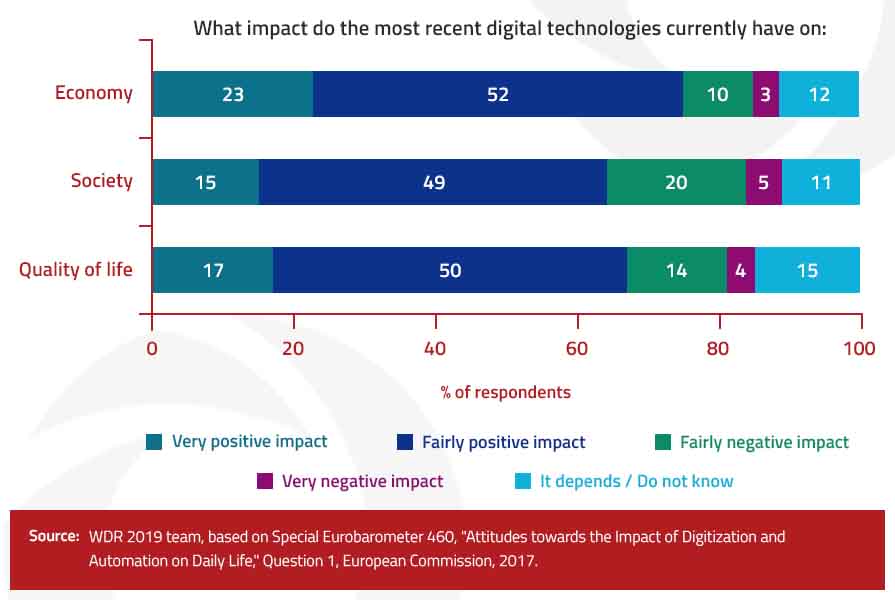Digital Transformation | 22 Jul 2022 | 9 min
Bringing Back Humans with Industry 5.0

Industrial Revolution 1.0 spun advancement into many people’s lives, Industrial 2.0 took the primitive dits and dahs to a whole new level, the third Industrial revolution somewhere in the 1950s saw the birth of digital technology. Today, we’re in industrial Revolution 4.0, something we’ve discussed in a previous blog – where robotics, Artificial Intelligence, 3-D printing, IoT, quantum computing, are just some of the things we discuss casually over breakfast or lunch.
Why am I talking about an Industry 5.0 then? Are we going to be overthrown by the robots? Have we not gone far enough? Are we not as advanced? Not really, guess if Wakanda can, so can we!
What the fifth industrial revolution stands for is exponential advancement of the AI revolution, where quantum computing will take one giant leap (no we don’t need Scott Lang to explain quantum to us…, tch…) and finally the fifth industrial revolution is when humans and machines work together in workplaces.
Advancements discussed in Industry 4.0 and the fifth Industrial revolution may sound the same, but 5IR is new and improved IR4.0. Where Industrial revolution 4.0 was busy getting rid of humans and getting machines to do everything, Industry 5.0 is looking to put them back into the game.

So, this will happen through:
Industrial Revolution 5.0 will bring about the need to reshape skills. The demand now is to have heightened cognitive skills, exceptional socio-behavioural skills, and greater adaptability as opposed to skills for which technology can be used.
The fifth industrial revolution will usher in a new era where through the use of digital technologies like AI, humans can create, what the World Development Report (WDR) 2019 calls, ‘global platform-based businesses’ which is fundamentally different from traditional ones. This means that they can generate more value and connect with not just their customers but their producers, suppliers, and providers.
The ‘bottom billion’ have always been excluded from digital leaps that other nations take, but through Industry 5.0 that gap can be sealed by building newer technologies or handing out more meaningful jobs for a better planet and an advanced human race.
A survey in the WDR shows us just how people feel about technology in their lives:

I don’t know what you are talking about, pat comes the answer from 44% of the people across the globe who heard about this article verbally from a friend, because they couldn’t have read it – they don’t have internet. Yes, a study shows 44% of the world population does not have internet access (the ‘bottom billion’ I was talking about earlier).
And no, Your Honour, I am not barking mad to ask everyone to turn into digital natives – I would like to call upon the pandemic to the witness stand. It showed us the need to understand technology, learn from it, and grow with it.
With technology improving by leaps and bounds the GDP has shattered the roof in most places, not the wages though. Seems like what was true about 1790-1840 (after the first industrial revolution) is true even now. Robert Allen spoke of the Engel’s pause where the wages stagnated, and the per capita GDP rose rapidly.
Is history repeating itself? Are we paid less because technology is doing our work, is a question that has puzzled many. So, when I share numbers from the World Economic Forum about how AI can change white collar jobs by 2025 and by 2026 make all your decisions, it sure will send chills down the spine.
But here is exactly where Industry 5.0 comes to our rescue. It gives humans their due by letting us do creative tasks while taking away the mundane and repetitive and letting the machines do them. That means the highly complex tasks are done using AI and we will have more time in our hands to do creative and compelling work.
There has been another solution that has been doing rounds but with varying results – the theory of the Universal Basic Income, so everyone has enough to live whether they work, or the machines do it for them.
This, at least personally speaking, is a slightly better alternative for some because then they can embrace technology without the fear of destitution. Some companies focus on future proofing their employees while others cut their workforce to bring robots into the mix.
In conclusion, at all times, technology should be approached with caution because , investing in people or technology needs more thought than choosing who the Oscar for Best Picture in 2022 should go to (wrong example, they had to choose tech this time… scratch that… the workings of the pandemic!)
Write to us at Nitor Infotech if you would like to share your views on whether the fifth industrial revolution really is the need of the time, or if you wish to know more about our services.

we'll keep you in the loop with everything that's trending in the tech world.
